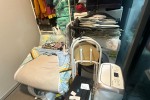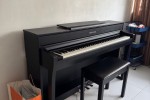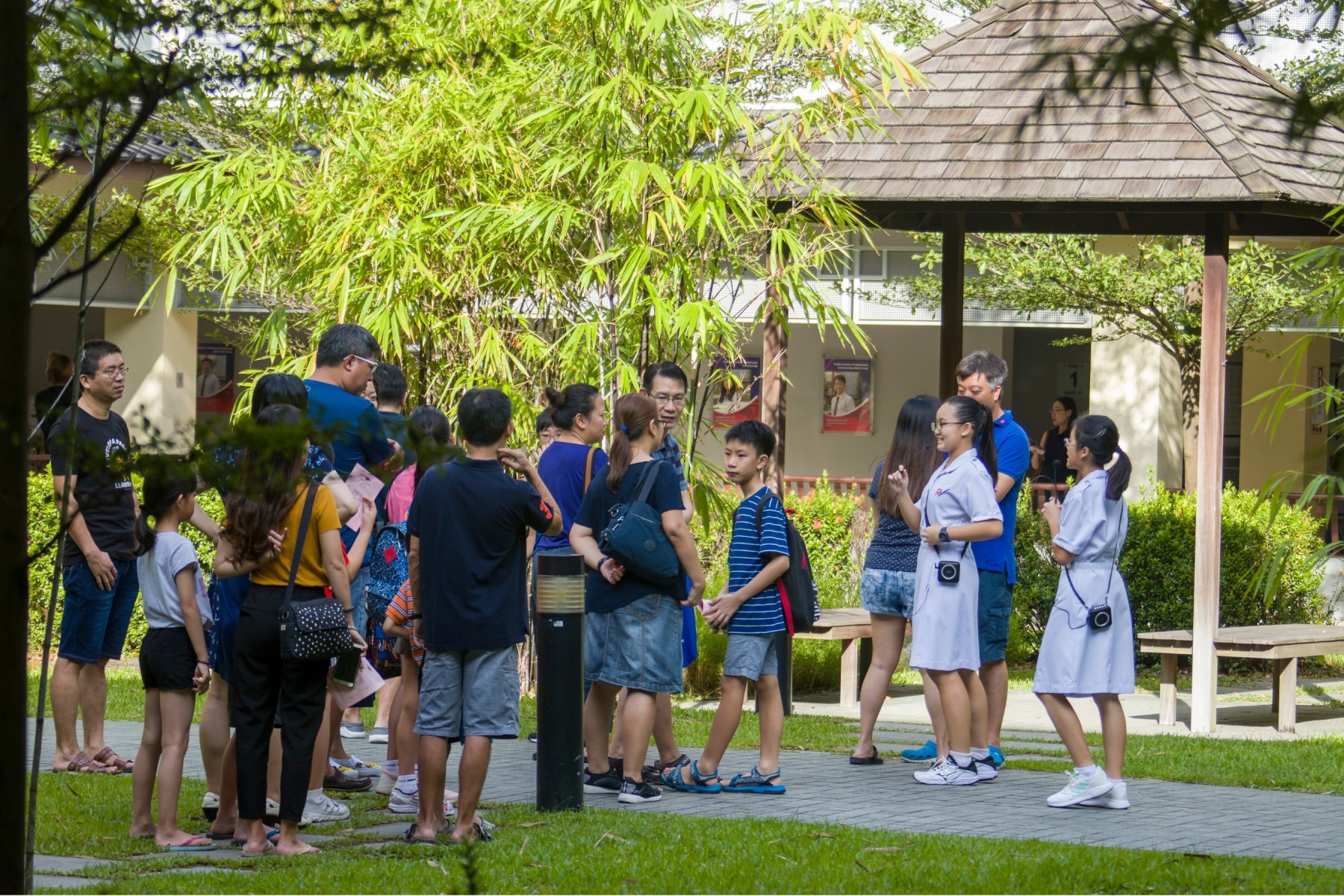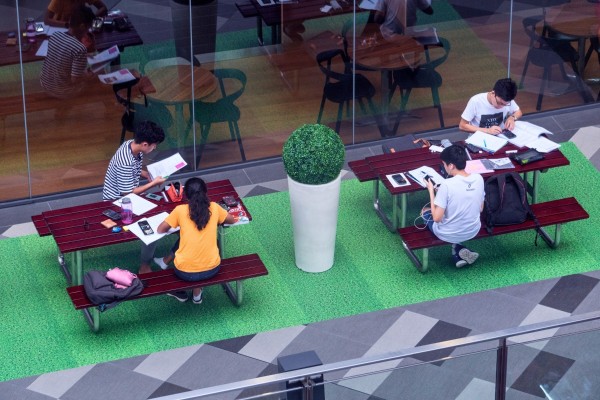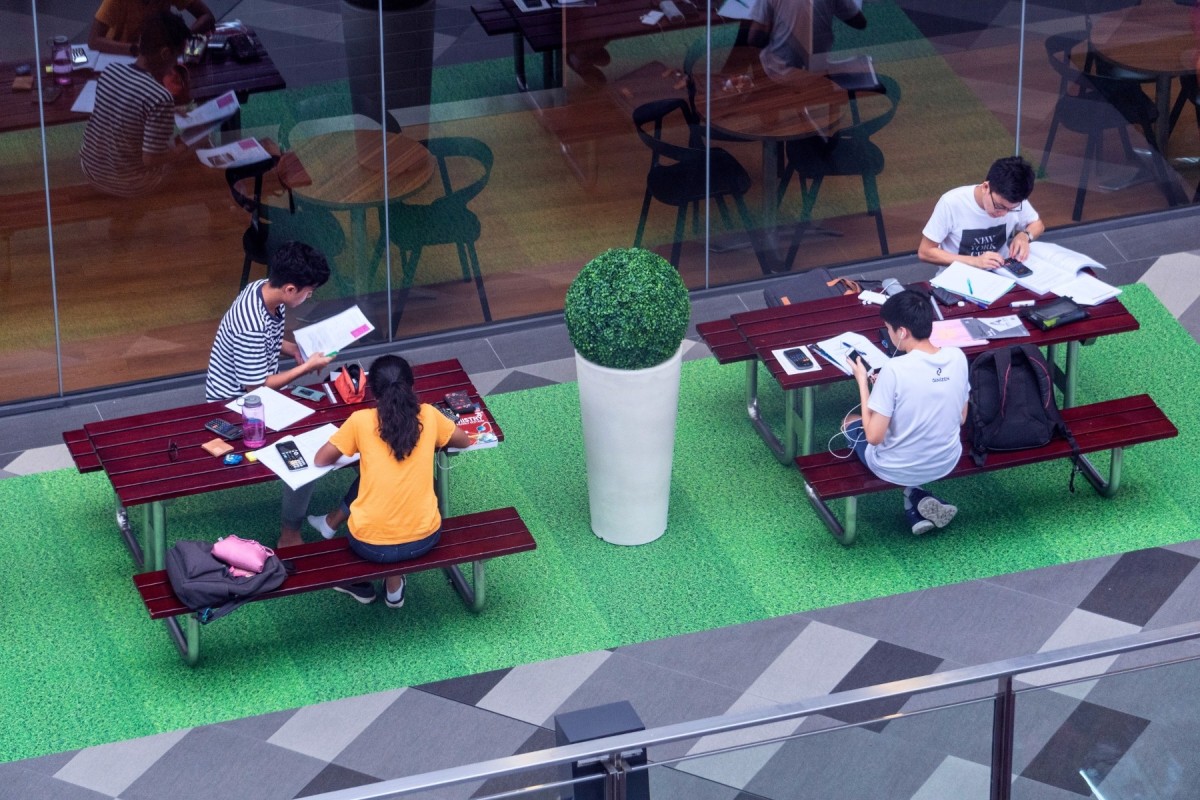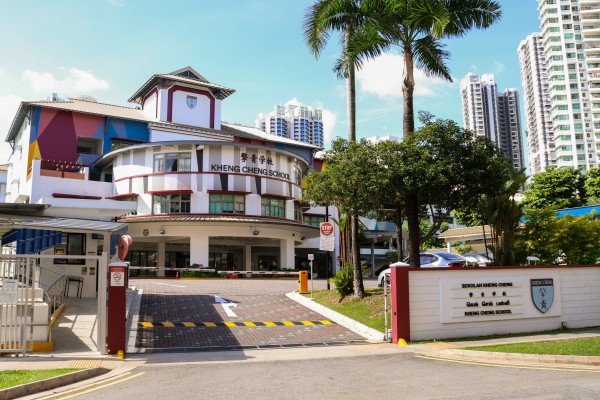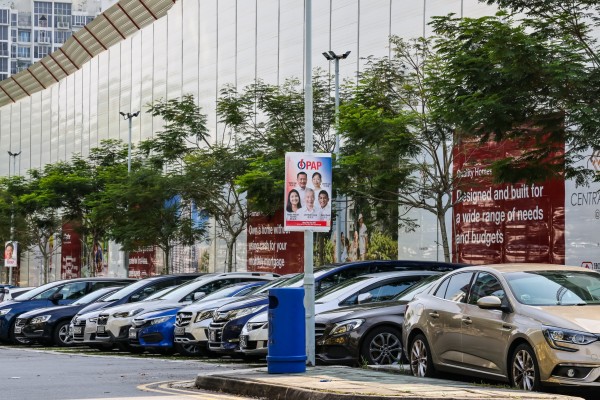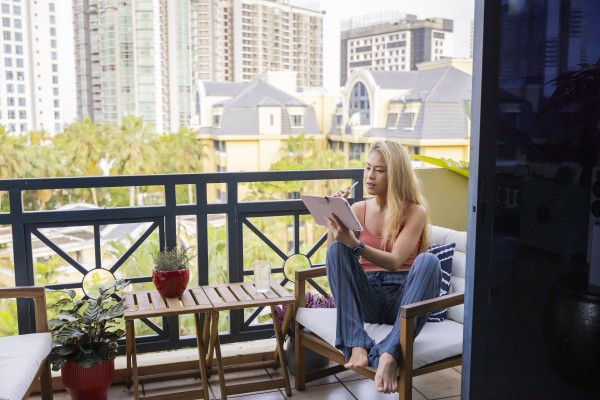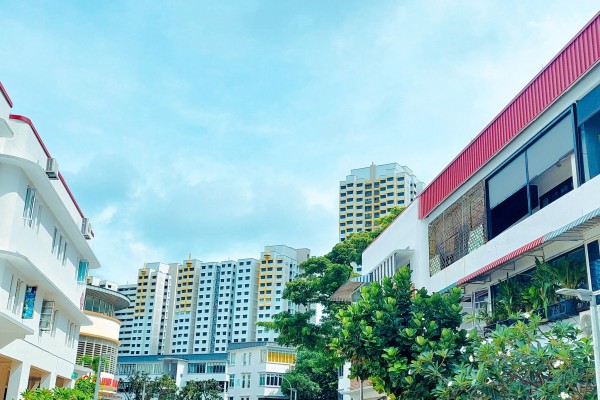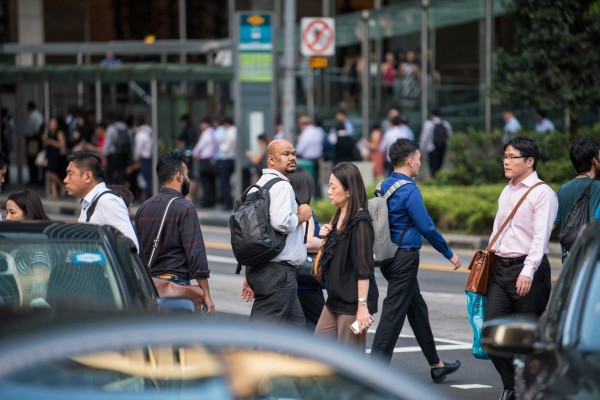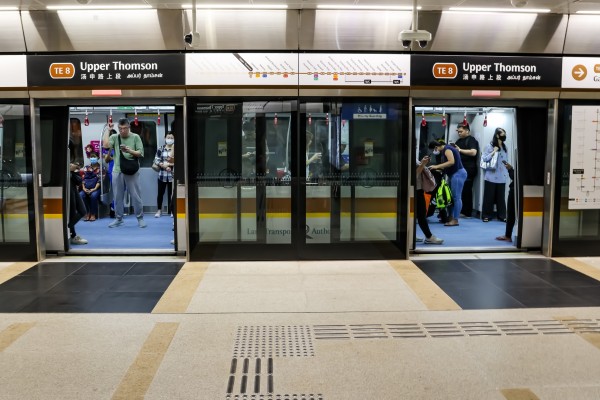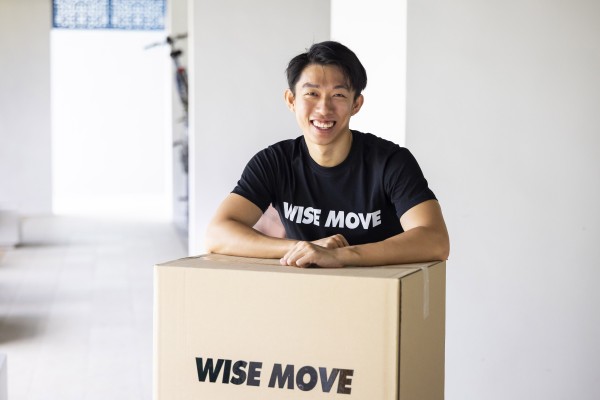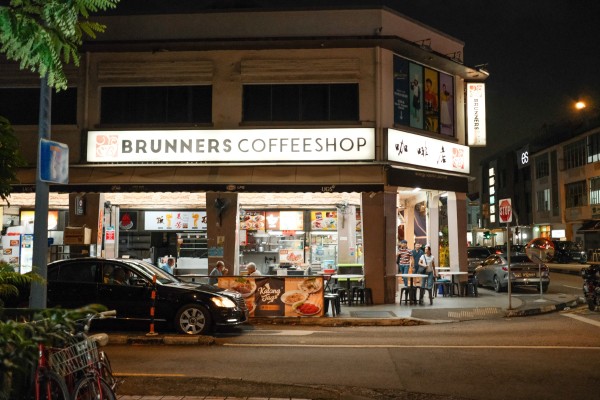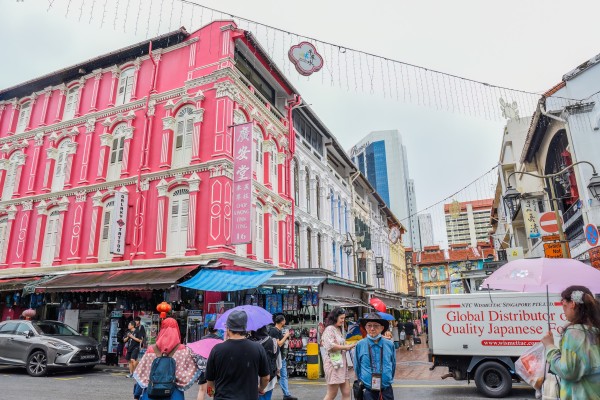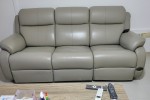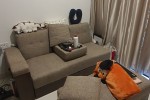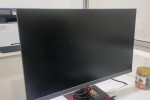Help your child survive exam season in Singapore


Even if you’ve only just arrived in Singapore, chances are you’ve already heard about its world-class and famously demanding education system.
As one of the top-ranked education systems in the world according to the Organisation for Economic Cooperation and Development (OECD), it’s got plenty going for it. Its students consistently perform exceedingly well at global Math, Science and Language tests. This includes the OECD’s Programme for International Student Assessment (PISA) in which Singapore topped the table in 2022, beating 80 other countries.
All this comes at a cost. Singapore students are also notoriously stressed out and anxious about their exam performance in relation to their peers. This is largely due to the pressure their parents exert on them, according to a 2016 study conducted by Arizona State University.
What you do for your child will make a huge difference in how they survive (and even thrive) in Singapore’s ultra-competitive education system. Read on for helpful tips to get them through the stresses of exam season.
Introduction to Singapore’s education system
Singapore’s education system is based on the UK model and is structured as follows:
- Six years of primary school commencing when the child is 7 years old.
- 4 to 5 years of secondary school, which typically lasts until the child is 16 or 17 years old
- 2 to 3 years of Junior College, Polytechnic, or vocational studies
- 2 to 5 years of university.
Tests, assessments and exams
Testing is done regularly from Primary 3 onwards, culminating in national examinations at Primary 6, Secondary 4 or 5, and Year 2 of Junior College or Year 3 of the centralised institute course.
Students from Primary 3 and up typically sit for multiple tests throughout the school year, including:
- Weekly spelling tests in both English and Mother Tongue Languages
- Termly Weighted Assessments, which contribute to the end-of-year grade (these usually take place between weeks 5 to 8 of each term)
- End-of-Year exam (usually held between weeks 4 to 8 of the last term).
As an expat, you’ll sit for this same schedule of exams as local students if your child is enrolled in a government school.
International schools have their own milestone exams. Some schools do the International Baccalaureate Examination, while others do the GCSE O or A Level Examinations.
Why exams matter so much in Singapore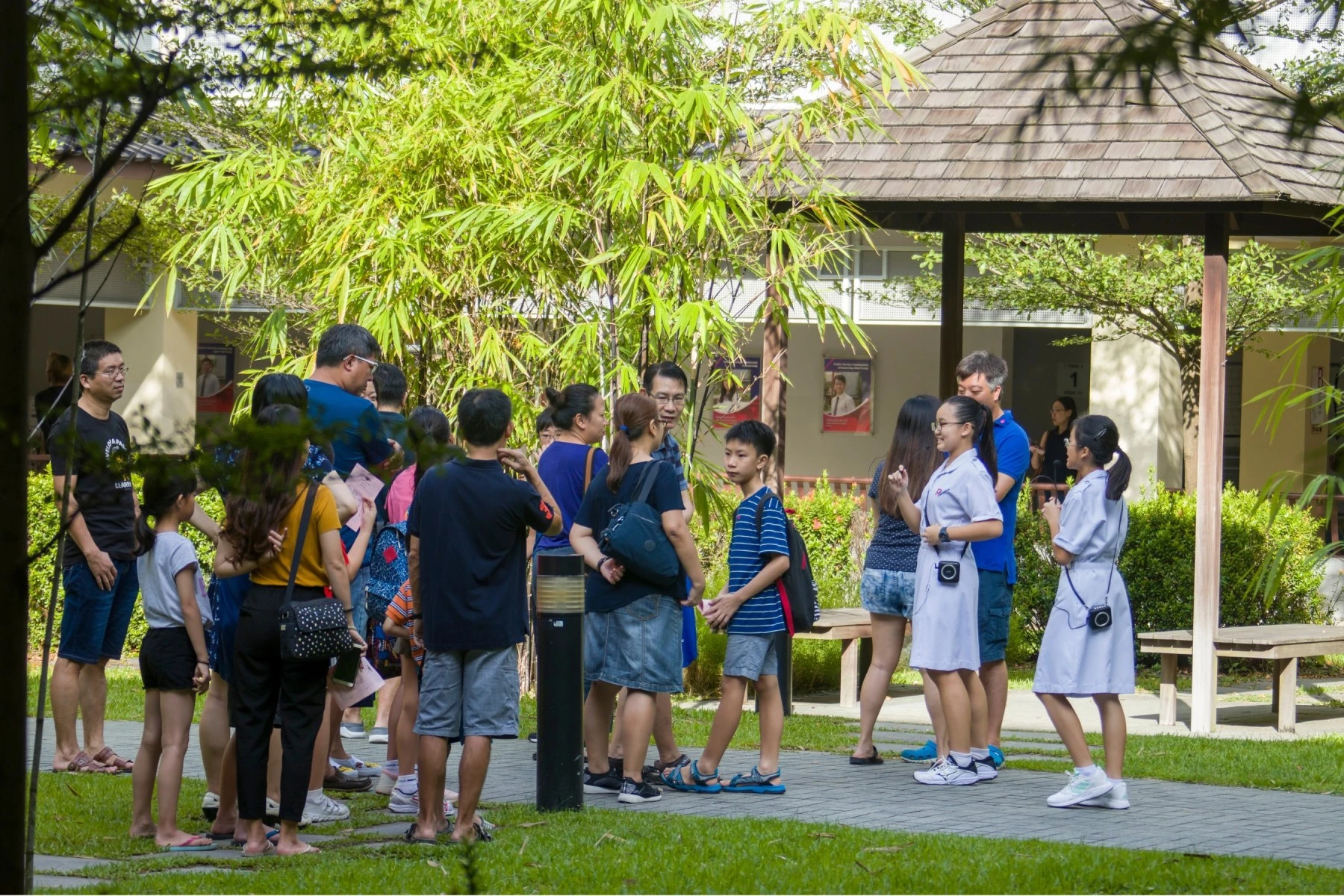
As a predominantly Asian country, Grades matter a lot in Singapore. It’s not just a matter of excellence, although that’s definitely important in itself.
The path to social and economic success
For many Asians, their children's grades are not just a measure of the children’s ability, but also a reflection of the family’s values, work ethic, and prospects. Good grades have also traditionally been a means of upward social and economic mobility.
As a result, there’s a lot of social pressure associated with how well a child does at their exams here in Singapore, in local schools. You’ll find parents starting to be stressed out the moment termly weighted tests and yearly examinations kick in, which is typically from Primary 3 onwards.
Access to the best schools in Singapore
In the national examinations, such as the Primary School Leaving Examination (PSLE), the Singapore-Cambridge General Certificate of Education Ordinary Level (GCE O-Level) exam, and the GCE Advanced Level exam (GCE A-Levels), students are graded against their entire cohort of over 30,000 students. These scores are important because they determine the schools they will be able to attend next.
All government schools in Singapore teach the same curriculum stipulated by the Ministry of Education (MOE). Some schools are more sought-after because of their heritage, reputation for producing scholarship recipients, and strengths in sports and performing arts competitions.
Gaining top grades is important for gaining admission to such schools, which many Singaporean parents perceive to be crucial in helping their children get ahead in life.
Common stress points for expat kids in Singapore
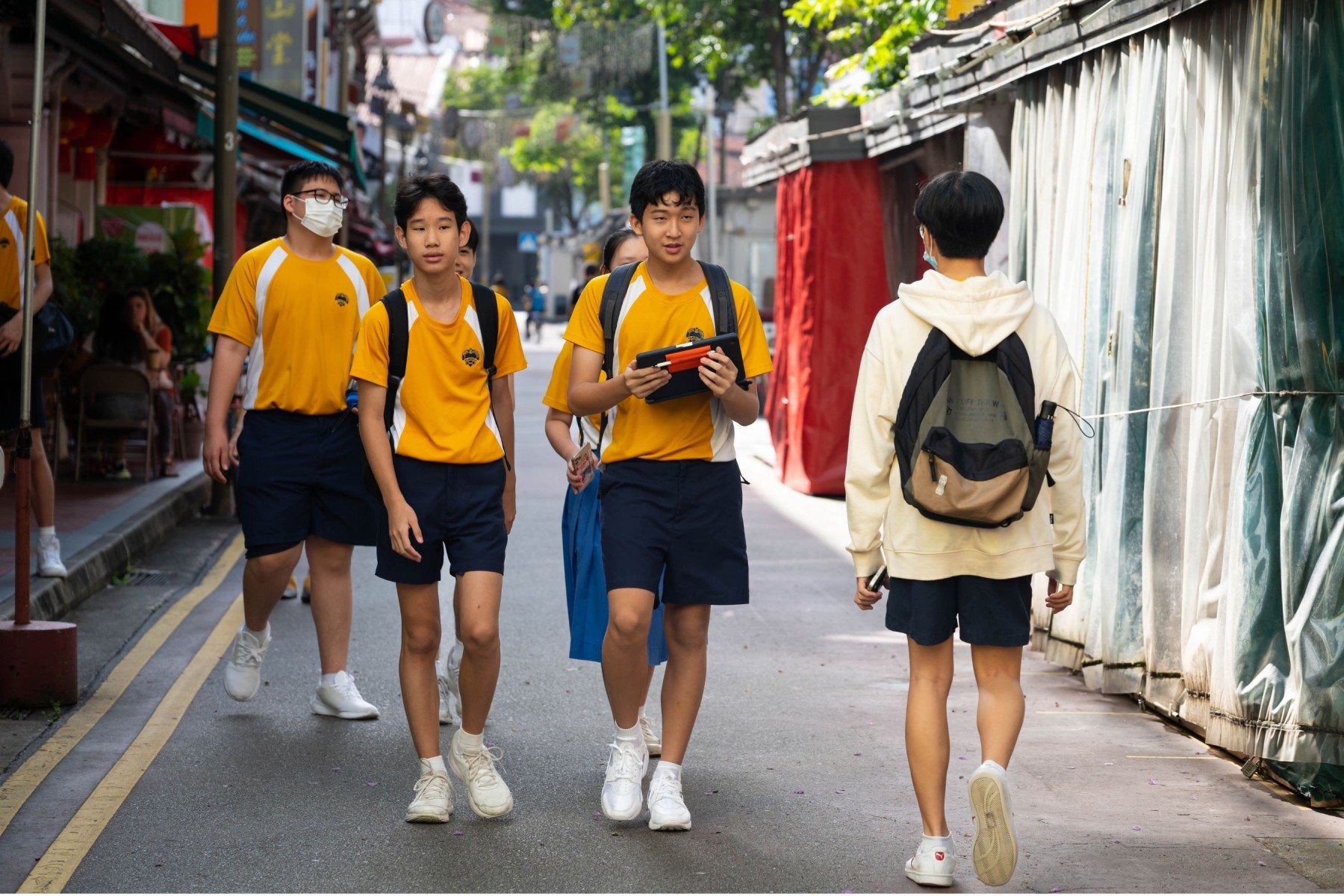
Children in Singapore are already a highly stressed bunch. A 2023 survey conducted by the National Institute of Mental Health (IMH) showed that 1 in 3 youth aged between 15 to 35 years old experienced very poor mental health.
This stress, caused by the pressure of school and obtaining good grades, is often described as a “pressure cooker”.
If you’re contemplating enrolling your child in a local government school and they're used to a more relaxed school environment, you’ll want to take note of these common stressors your child may face. This is especially important to know how to mitigate the stresses associated with schooling in Singapore.
Academic rigour
The academic demands on students in Singapore are high, and your child may struggle to catch up initially.
Even among young children aged five to six, it is common for them to be tested on spelling in their kindergartens weekly or fortnightly. In addition, some of these young children even attend high-ability enrichment classes in Math and Science to hone their skills in these subjects.
From Primary 3 onwards, students are tested almost every term in Weighted Assessments, which count towards the final score at the end of the year.
In the last term of the year, between the end of September and October, the children have to sit for the End-of-Year Examinations, which test them on all they’ve learnt for the year.
Why are grades important?
These grades are typically used to gauge your child’s standing in their school’s cohort. Your child will be assigned to a particular class in the following academic school year based on their results. In many schools, these grades are also used to determine whether the child qualifies for higher-ability enrichment classes held by the school in the various subjects, including Higher Mother Tongue and E2K Math programmes.
The English advantage
Coming into the system from an English-speaking country is beneficial in helping your child to gain a foothold, as all classes are typically conducted in English. The only exception is in Special Assistance Plan (SAP) schools, where the objective is to preserve and promote the Chinese language and culture. Some non-academic subjects in these schools are taught in the Chinese language.
“Mother Tongue” language
All children in Singapore government schools have to study a second language, officially known as the “Mother Tongue” language. That’s because for Singaporean children, they automatically have to learn the language of their ethnicity and heritage. So the Chinese learn Chinese, the Malays learn Malay, and the Indians learn either Hindi or Tamil, the only two Indian languages offered in mainstream schools.
Children who do not study one of these official Mother Tongue Languages for the PSLE and are officially exempted will be assigned a grade based on the average Mother Tongue Language performance of their cohort in the PSLE. This applies to children who study their own languages outside of school.
However, for the GCE O- and A-Level exams, children may choose from this list of approved languages and sit for the examinations:
- French
- German
- Japanese
- Arabic
- Burmese
- Thai
If you’d like your child to try learning one of Singapore’s official Mother Tongue languages, the schools will be more than happy to have your child learn. They'll also provide all the support your child needs. External tuition classes are also widely available if your child requires extra help.
Take it from a local
Earning and doing well in the Mother Tongue languages is no easy feat. Children are expected to be able to speak, write, and read the language to a rather high proficiency. Not getting a good grade in the subject would inadvertently bring down their exam grades.
Social expectations
While there has been less emphasis on grades in recent years, Singaporean students still feel the pressure when speaking among their classmates, even in casual conversations.
They’ll realise that almost everyone in class is attending tuition classes in most subjects, or being pushed to take sports or music at a competitive level. The comparisons may seep in even if no one overtly pushes the comparison, and your child may wonder why they aren’t doing the same.
Some teachers also emphasise the actual grades at the end of a test or exam, and the students who attain lower scores will be sent to extra remedial classes or counselled. While additional academic support should be welcomed, some students may feel lousy about this due to the long-standing preconceived notions of academic success.
Strategies to survive exam season as a parent
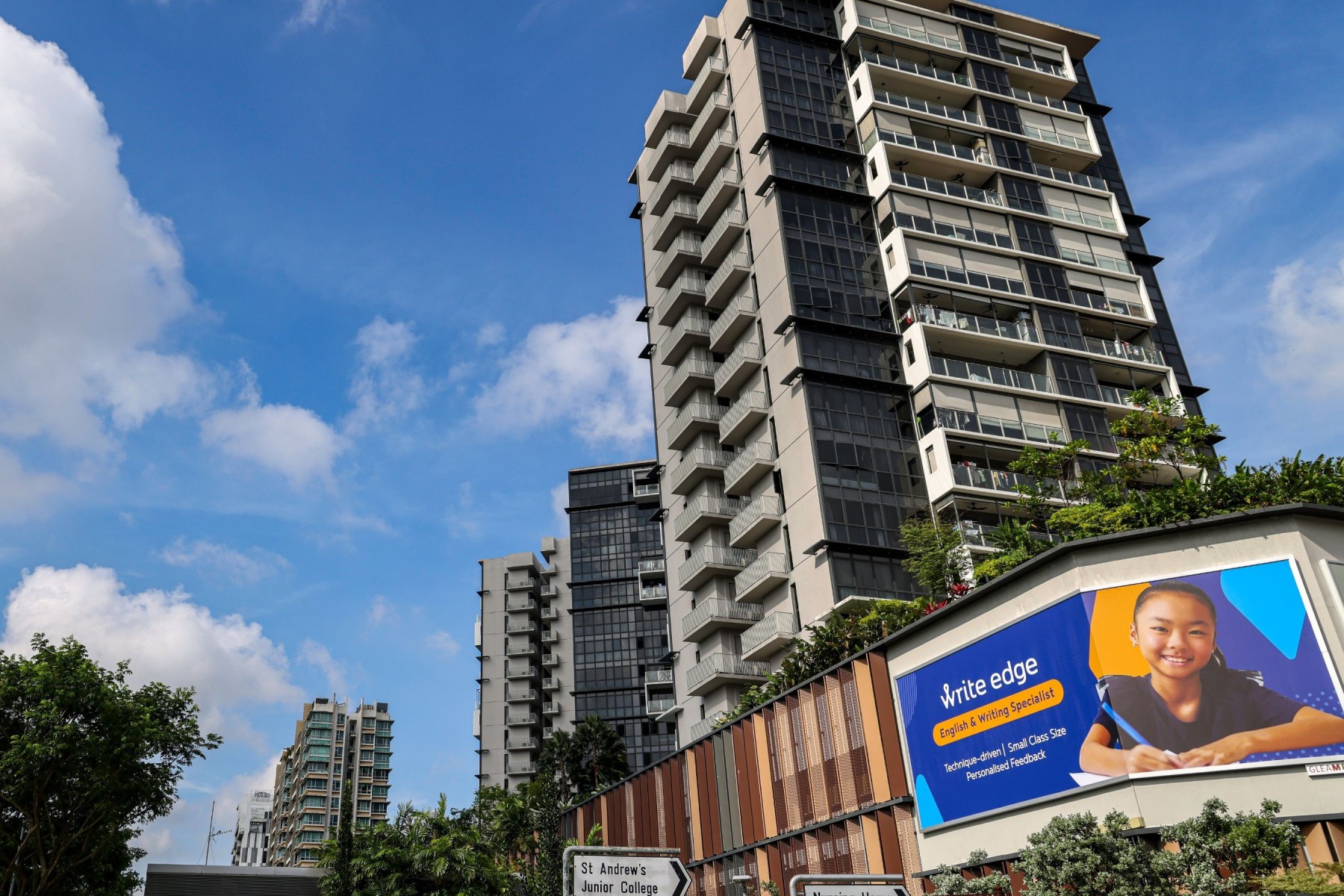
The key to thriving in a local government school is really in managing expectations, both for yourself and for your child. Knowing how the system works is also a big plus. This way, you go in with eyes wide open, and you can prepare your child beforehand.
Here are five practical strategies that will help you and your child get through the exam season in Singapore without breaking a sweat.
1) Understand the examinations
The very first time you face all the different tests, assessments, and exams can be jarring for you and your child. You may find yourself asking:
- “Why are these tests never-ending?”
- “Why does the school expect so much from my child?”
- “Are they even important?”
Well, the thing is, they’re as important as you want them to be. Understanding what the system is like and making sense of it in your own way is the key to surviving all this.
The exam schedule is largely the same across all government schools in Singapore. Knowing when to expect the tests and exams to happen will also help you prepare your child for them.
2) Set your own family benchmarks
While the school may expect your child to attain a certain grade, it’s ultimately your own family’s benchmarks and expectations that matter. Many Singapore parents push their own children to obtain good grades because they want their children to gain entry to certain schools.
This table of all the Secondary schools in Singapore will tell you what score your child needs to attain to get in.
The top schools literally require your child to score almost straight Achievement Level (AL) 1s (90 marks and above out of a hundred for all four subjects in the PSLE).
Do your own research to determine which school is best for your child. Some of the less popular schools also have excellent resources and special programmes that your child may benefit from.
You’ll also want to know the requirements for your child to transfer back to your own home country’s local schools when your time in Singapore is over. You can always check this with your home country’s Education Ministry, so that you will be clear on the practical benchmarks where academics are concerned.
Tune out from the chatter from parent chat groups and social media forums, where you’ll see discussions swirling on the best schools for the year and how their children can improve their chances of getting in. Remember: you know your own child best.
3. Get help from your child’s school
If your child feels overwhelmed by the impending tests and exams, you should always get your child’s teachers to help first before turning to other external sources. Their teacher has taught them for months and knows their strengths and weak points, so they’ll be well-placed to guide your child.
Almost all schools will have a system in place to automatically identify students who are falling behind and get them to attend extra remedial classes after school to help them catch up. These classes are smaller in size, which means that teachers can focus on students' problem areas.
If your child hasn’t been identified to attend such a class, but you feel that they need extra help, you can always approach the teachers to ask for this. You can even arrange a one-on-one consultation session with them. They’ll be more than happy to help your child.
4. Look for external help
Sometimes, despite all the extra remedial classes your child attends at school, they may still feel like they’re falling behind. In these instances, you can find external classes to help them catch up in the subjects they struggle with.
These classes are called “tuition classes” in Singapore, and are the reason for Singapore’s other nickname, “Tuition Nation”. This is because a large proportion of Singapore students attend external tuition classes, with several juggling these extra tuition classes in multiple subjects until 9 pm on school days.
You can enrol your child in group classes at a tuition centre, or look for a home-based private tuition teacher who will provide one-on-one or small group lessons for your child (Facebook groups like this one are a good place to start looking for private tutors).
Keep in mind your objective for enrolling your child in such classes, whether it is to help them catch up or to push them harder, so you don’t get sucked into the whole competitive nature of tuition in Singapore.
5. Protect rest time
This is the one thing that will keep your and your child’s sanity during the intense exam season in Singapore: ensuring adequate rest and relaxation.
If you come from a country with a slower pace of life, this may seem like a no-brainer, but it’s too easy to get pulled into the really hectic pace and intensity of school life here in Singapore.
Do your child a huge favour and protect rest and family time as much as possible, even during exam season, even if everyone else around you is doing otherwise. This will go a long way in keeping them happy, healthy, and able to continue enjoying learning in our local school system.
You can do it!
Find out more about how you can give your child what they need during exam season.
What do our customers say?
